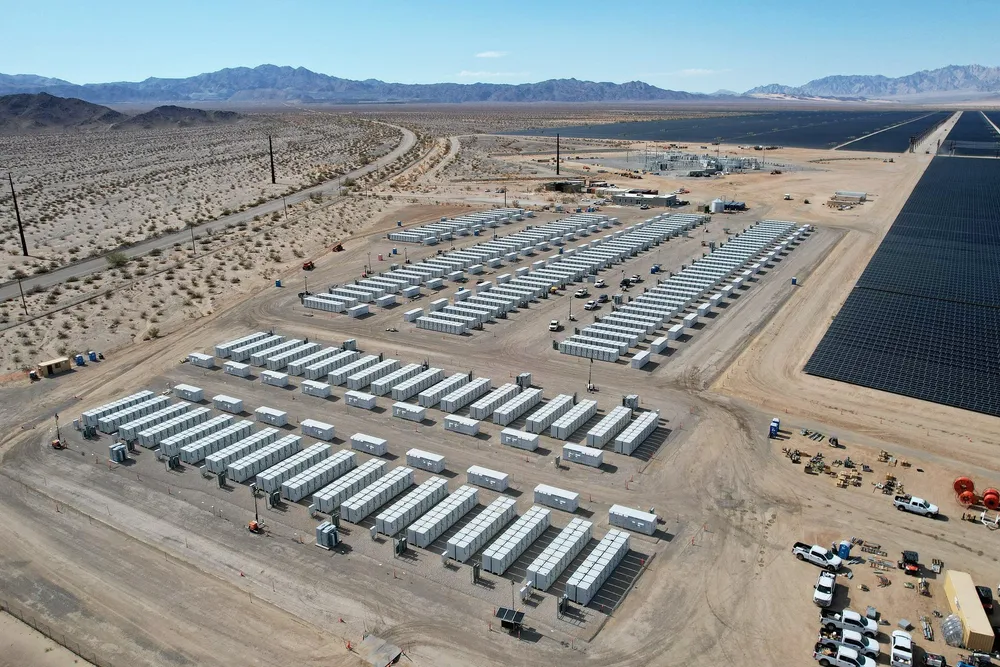NextEra CEO says tariffs won't derail huge US renewables growth plans
Green power pacesetter says minimal supply chain exposure to trade policies bodes well for expansion

US pacesetter NextEra Energy estimates it has minimal tariff-related supply chain exposure for planned renewables development through 2028, in an upbeat view for a sector facing growth challenges posed by an adversarial President Donald Trump.
“We’re looking at around $150m on $75bn of capital expenditure. That’s less than 0.2%,” CEO John Ketchum said on a recent earnings call. “And we feel like we got a good shot at getting that to zero.”
He was referring to NextEra’s Energy Resources division, which is the country’s largest independent developer, owner, and operator of grid-scale onshore wind, solar, and battery energy storage.
Energy Resources expects to develop between 36.5GW and 46.5GW of project capacity for those technologies between 2024 and 2027. It has not issued numbers for 2028, which will be Trump’s final year. He is ineligible to run for a third, four-year term.
Energy Resources also develops natural gas pipelines and power plants and operates two nuclear facilities. It is in the process of re-starting a third in the state of Iowa that was decommissioned in 2020.
NextEra’s other main business is Florida Power & Light, the top electric utility in the state and largest in the US by customers served and power sales.
Trump in his first 100 days unleashed a barrage of tariffs including against the US’ closest allies. On 9 April, he abruptly paused his brief fling with 11% to 50% “reciprocal tariffs,” rolling them back to his initial 10% for 90 days after financial markets reacted negatively.
The exception was 145% for China, the third largest US trading partner after Canada and Mexico, and a leading supplier of certain components and critical materials for the clean energy sector here.
Ketchum said his team started looking at tariff risk three years ago. Like Trump, predecessor Joe Biden trade policies were unpredictable.
“We’ve been at it. We didn’t just wake up on 6 November and say, ‘Oh my God, what do we do about our supply chain?’” he said, referencing the day of Trump’s election in 2024.
Trump’s administration has sent mixed signals over whether it intends to re-impose his so-called “Liberation Day” tariffs after 9 July or, if so, at what rates. This may depend on how trade negotiations proceed with individual countries or whatever new criteria Trump assigns.
Meanwhile, he has shown no sign of acquiescing on 25% tariffs imposed on aluminum and steel imports, regardless of source, a key clean sector input.
Separately, his administration last week set final countervailing and anti-dumping duty rates as high as 3,521% for Chinese-branded crystalline solar cells and modules imported from four Cambodia, Malaysia, Thailand, and Vietnam.
The move came after a Department of Commerce finding that some Chinese manufacturers were shipping products through those countries to avoid paying tariffs imposed by the US over the past decade.
Trump’s baseline and product-specific tariffs and uncertainty over his future intentions have led suppliers to raise prices, although Ketchum claims that Energy Resources has protections in place in most cases.
“Most of the contracts, the supplier takes all the risk. Some of the contracts, they take almost all the risk except for a small sliver that we work through with them,” he noted.
Energy Resources has also been able to use its buying power to significantly shift tariff-risk to suppliers. “Size and scale matter more than ever in today’s environment. Suppliers want us to be repeat customers,” said Ketchum.
For wind, Energy Resources sources its turbines from GE Vernova, which produces the nacelles at a plant in Pensacola, Florida.
For solar, Energy Resources has dramatically diversified its supply chain with no sourcing of panels from Southeast Asian nations impacted by the new tariff rates, according to Ketchum.
When asked about batteries, he said his team had foresight last year to secure arrangements to purchase US-made batteries for a significant portion of the Energy Resources backlog, with the balance sourced outside China and tariff exposure allocated to the supplier.
“In short, our tariff exposure on batteries is expected to be negligible,” he said, adding that because they will be assembled here with enough US-made components, they will qualify for federal tax credits.
Ketchum asserted that its overseas suppliers have a lot of (profit) margin when they deliver to the US. This, combined with their desire not to disappoint a major customer and with credit protections in the agreement, there is a very strong incentive for them to follow through on those commitments.
“When we put those three things together, I lose no sleep over whether, or not, our suppliers will fall through on their commitments and deliver into the US,” he said.
(Copyright)